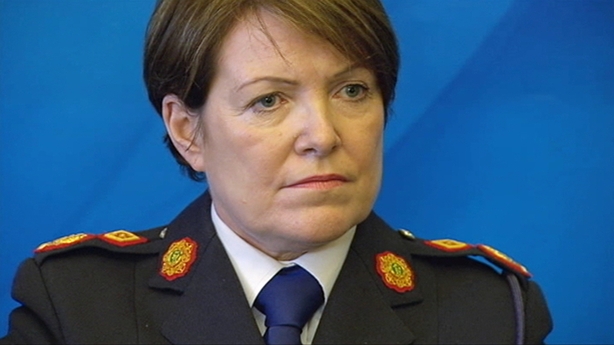A draft letter to be sent to Garda Commissioner Nóirín O'Sullivan lists 15 questions for her to answer on how the force responded to the controversies over breath tests and fixed charge notices.
It is understood the Oireachtas Justice Committee has agreed to give Commissioner O'Sullivan a week to respond to the questions.
The members of the committee can have an opportunity to provide further questions before the letter is formally sent. The draft letter has been seen by RTÉ News.
The questions include why gardaí did not seek information from the medical bureau of road safety in 2015 and 2016, even though the bureau had informed gardaí in July 2014 of discrepancies.
Another question centres on whether the publication of an article in The Irish Times on February this year influenced the decision of gardaí to contact the Medical Bureau of Road Safety.
It also asks the commissioner what prompted the press conference by her two weeks ago.
Another question focuses on the knowledge of Minister for Justice and Tánaiste Frances Fitzgerald and why she was not aware of issues regarding the breath tests before the media was, and it asks if there are other potential issues involving discrepancies with other figures.
Ms O'Sullivan has already said an interim report will be delivered on the controversies in a month and a final report in three months.
However the committee will focus on the timeline of the garda response to the discrepancies over 14,700 wrongful convictions and the number of breath tests being exaggerated by one million.

Draft letter from #justice committee with Initial 15 Q's for #garda Commissioner @rtenews pic.twitter.com/2tFQ2XO9gv
— Martina Fitzgerald (@MartinaFitzg) April 4, 2017
The Government has meanwhile backed proposals for a "wide-ranging" Commission on the Future of Policing in Ireland to be established.
Tánaiste and Minister for Justice Frances Fitzgerald has said the terms of reference should allow for an examination of all aspects of policing.
In a statement, Ms Fitzgerald said the issues that should be examined are:
- structures and management arrangements required for the most effective delivery of policing, including all functions currently carried out by An Garda Síochána - community safety, security and immigration
- appropriate composition, recruitment and training of personnel
- culture and ethos of policing
- appropriate structures for oversight and accountability
- the legislative framework for policing
- existing and emerging issues identified as key challenges for Ireland’s model of policing
- best practices in the policing models of other countries focused towards greater effectiveness and efficiency, and fostering public confidence in policing,
- previous reports concerning policing in Ireland
- any specific challenges to delivering consistent structural and cultural reform in policing.
Drafting the terms of reference will involve consultation with Opposition parties and relevant statutory bodies including the Policing Authority, the Garda Síochána Ombudsman and the Garda Inspectorate before going back to Government for approval, she added.
There was an extensive discussion of the plans at Cabinet, involving the Taoiseach and several ministers.
Several ministers said they wanted the commission to be more wide-ranging than the Patten Commission, which examined policing in Northern Ireland and made recommendations for its reform in 1999.
The Independent Alliance stressed the need for independent international experts to be part of the commission.
Meanwhile, the political fallout from the recent garda controversies continues.
Many on the Opposition benches have already made up their minds up on the future of the Garda Commissioner, with calls for Ms O'Sullivan to step aside or step down.
Three separate Dáil motions are due to be debated on the issue in the coming weeks.
Fianna Fáil justice spokesperson Jim O'Callaghan this evening said that if his party was in Government, it would be invoking the powers to remove the commissioner.
Speaking on RTÉ's Drivetime, he said because Fianna Fáil is not in Government, it cannot do so.
He said responsibility for removing the commissioner rests with the Government, adding that the Fianna Fáil party has been very clear that it cannot express confidence in Ms O'Sullivan.
It is understood that a majority of Fianna Fáil frontbench TDs raised issues about the commissioner's position at a meeting today.

